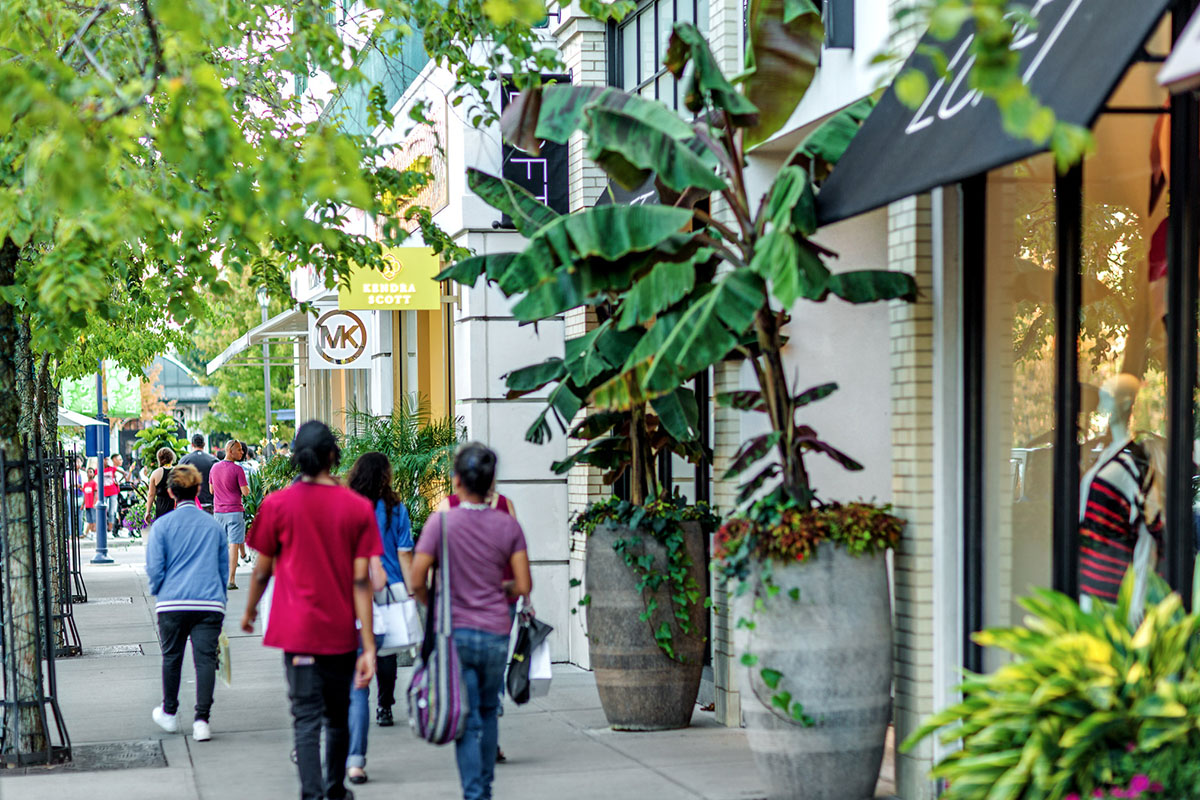By Yaromir Steiner
In today’s world, sustainability has become a priority interest as more individuals, companies and governmental organizations recognize our abuse of natural resources and seek to restore balance in environmental, social and economic spheres.
To see change in the future, we need to take the global approach of sustainability and apply it at a local level—today.
Environmental Sustainability
Whether through changes in the weather or damage to plants, animals and human health, more than half of Americans believe climate change has at least some effect on their community. The honeybee is just one such adverse effect.
While honeybees perform about 80% of all pollination worldwide, hives in the United States continue to decline at alarming rates. If you don’t have pollinators, you don’t have food on Earth—it’s a circle of life that must be defended.
As an example of what can be done to reverse this trend, Steiner + Associates’ Easton Town Center project in Columbus has cultivated a plan to plant thousands of pollinator-friendly flowers to attract honeybees and other insects. The center is also planning to install beehives on building roofs as a way to produce honey on-site.
Social Sustainability
Chronic illness such as heart disease, stroke and diabetes are the leading causes of death in Ohio. Much of this burden is preventable, and even small changes in health can prevent new cases. To that end, every initiative an organization develops should center around how it can contribute to the health and wellness of its local community.
As one way to make it easier for the Columbus community to be active, Easton Town Center allows 10K/5K run organizers to set up a race on our premises with almost no effort. The company helps promote the event and even contributes financially to their cause, if applicable.
Easton also organizes and promotes other healthy activities for the local community, including free yoga classes outside in the summer months.
Economic Sustainability
Local businesses are the heartbeat of America. Multiple studies show that spending money locally—as opposed to non-locally—keeps a much higher percentage of that cash circulated within the community.
Investing in local is an investment in ourselves and the communities in which we live and operate. A community that is known for supporting local businesses eventually fosters a cycle of entrepreneurship. That cycle continually breeds new and innovative brands, products and services from brilliant people who would otherwise leave the city for better opportunities.
Easton Town Center entices local tenants ranging from new entrepreneurs to digital native businesses to open a pop-up through an innovative tool called Shop/LAB. This 500-square-foot customizable space plays a role in helping small businesses and local entrepreneurs achieve their dreams by giving them a physical presence from which to drive traffic and be discovered in a new market.
These are just a few of the countless ways to think differently and thoughtful about sustainability. The more we can do on a local basis, the less of a negative impact we will have on the world, and our future.






